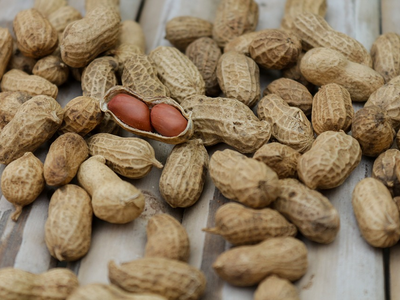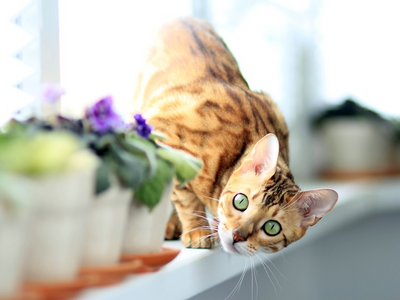19.09.2022
Puppy and kitten parenting—laying the groundwork for a harmonious future!
According to stats from 2022, 34% of households in the UK have a dog, 28% have a cat, and only 11% have both! Most people freak out at the thought of raising a puppy and a kitten together because the two seem to have contrasting temperaments. Puppies are exuberant and outgoing, while kittens are comparatively more independent and solitary. Can you do justice to their needs while caring for both at the same time? The answer is a definitive yes!
Why settle for one pet when you can enjoy the love and companionship of both? This guide will help you get into the right mindset for raising a puppy and a kitten together. We’ll discuss:
- The lifestyle preferences of puppies and kittens
- Suitable methods of socialising them with each other
- Dietary needs of kittens and puppies
Raising a kitten and a puppy—lifestyle needs
Some people would argue that raising a kitten and a puppy in the same living space can be chaotic, but it’s merely a test of your organisational skills. Since you’re dealing with two different species, you should be mindful of their individual:
- Everyday supplies
- Training exercises
- Engagement needs
- Grooming requirements

The labels “dog person” and “cat person” are not mutually exclusive. The trick is to train puppies and kittens to respect and cherish each other.
Source: Alexis Chloe
What pet supplies should you get?
Getting the right pet supplies is important to establish a disciplined routine for your growing kitten and puppy as they get accustomed to their new home. Check out the table for more details:
|
Pet |
Common supplies |
|
Puppy |
|
|
Kitten |
|
These supplies give your pet a sense of belonging, making it easier for you to train and socialise them once they settle in. Never ask your puppy or kitten to share their bed or toys, as that could trigger feelings of insecurity and competitiveness.
Puppy or kitten—who is easier to train?
It’s a common misconception that puppies are easier to train than kittens, but both pets have their good and bad sides.
Puppies are rambunctious and can be destructive if you don’t train them to direct their energy properly. A puppy’s initial potty and obedience training takes a while because of their excitable nature and short attention span. Kittens respond quicker to litter and obedience training, possibly because of their calm and observant demeanour.
After the initial training, puppies tend to be more eager to learn new tricks because food is a big motivation for them. Kittens respond better to a combination of treats and praises, but it still takes a lot of patience and commitment to teach them tricks.
Never punish your puppy or kitten when they mess up, as it could make them skittish or combative for life.

Training dogs and cats together? Maybe not a good idea. It’s not right for either pet to feel inadequate because the other outperformed them.
Source: Andrew S
Are the engagement needs of puppies and kittens different?
Parents with feline and canine companions find it challenging to manage the time they spend with each pet. Generally, dogs hate being alone for long and require more time from you, including playtime, walks, and interactive games.
Most cats won’t be as needy as dogs, but they still desire your attention. Spend at least 20 minutes with your kitty daily—let them lick you, playfully knead on you, or snuggle with you to strengthen your bond.
Kittens can handle being alone for a few hours, but don’t let them out unsupervised, especially if they’re adolescents (between 3 and 12 months of age). Teen cats tend to get into fights with other cats, and unspayed females can even get pregnant during their heat cycles.
The grooming needs of dogs and cats
Puppy grooming is usually more demanding because they’re larger and tend to get dirty after playtime. An average fluffy canine would need:
- Brushing twice a week
- Baths every 2–4 weeks
- Weekly clipping of nails
Kittens require minimal cleaning because they pick up self-grooming habits from their mother. They may need weekly brushing, depending on how much they shed. Short-haired breeds like British Shorthairs and Bombays can go for months without bathing or brushing if they only stay indoors.
The socialisation—can a puppy and a kitten be friends?
A kitten and a puppy brought to a home at around the same time and raised together typically grow up to forge a deep attachment. They are loving, often inseparable, housemates and may even exhibit agitation when the other is sick or not around. Check out some dog and cat breeds known to get along with each other:
|
Cat-friendly dogs |
Dog-friendly cats |
|
|
Parents raising both pets recommend a slow introduction of your puppy and kitten to each other. Wait for them to develop familiarity in their new home for a week or two. Once they’re ready, bring them together and use encouraging words to help them create a positive association with their housemate. If they behave or lick each other, reward them with treats. Be realistic in your expectations—if either of them acts aggressive, be quick to separate them and try another time when they’re calmer.
You may have to adopt a different approach when introducing your new puppy or kitten to a territorial older pet.

Puppy-kitty hellos can be unpredictable—be cautiously optimistic.
Source: (left/right) kevin turcios/kevin turcios
Introducing a kitten to a puppy or a dog
If you already have an older puppy or a dog in your household, train them with basic obedience commands (Sit, Stand, Stop, No, and similar). Before introducing them to a kitten, let them smell the kitten’s bed or toy to be familiar with the feline’s scent. Most dogs are super welcoming towards new kittens, but can still hurt them because of their massive size and over-enthusiastic greetings, so always hold your kitten in your arms when you initiate the introduction.
Introducing a puppy to a kitten or a cat
Kittens hunt mice and birds, not puppies, but they can still attack new pets if they’re unhappy with the change. Wait for two to three weeks before you introduce a new puppy to a feline. During the waiting period, ensure your kitty is in an emotionally secure space by:
- Giving them meals at regular times
- Keeping them busy and happy with games and interaction
Calm and happy cats accept new puppies quickly.
A common problem in dog-cat households is the dog bothering or chasing the cat, which could agitate the feline and instigate passive-aggressive responses. Act as a mediator if you notice signs of distress in your kitty, such as:
- Poor appetite
- Aversion toward their regular wet or dry food
- Stress-induced gastrointestinal issues like vomiting, diarrhoea, retching, and regurgitation
- Eating odd objects like litter
- Excessive sleeping
What are the individual dietary needs of puppies and kittens?
Canine and feline metabolism and dietary needs are vastly different. Dogs, like humans, are omnivores and can absorb nutrients from plant and animal sources. Give your puppy a complete dog food product with suitable amounts of proteins, carbs, vitamins, minerals, and fibre, and they’ll grow up healthy.
Feline nutrition is trickier because cats are obligate carnivores who should get the essential nutrients from meat. Their ideal diet should be:
- More than 50% animal protein
- Up to 20% animal fat
- Not more than 3% carbs
Finding suitable cat food products can be a nightmare because manufacturers use a lot of plant-based fillers instead of real meat for commercial reasons. Ingredients like corn, wheat, potatoes, rice, and peas may be nutritious to omnivores but would be hard to digest for carnivores, triggering conditions like stomach sensitivity, food allergies, constipation, and IBS.
Feline nutritionists recommend an everyday wet food diet for cats. Opt for grain-free products with lean meat, which is more nutritious than processed meat derivatives. Avoid giving your kitten:
- Dry food—Biscuits generally contain too many carbs, and regular consumption can lead to obesity, diabetes, and urinary tract and kidney diseases
- Raw food—Feeding dogs or cats raw meat is risky due to the potential pathogen contamination and food poisoning
Avoid giving human foods to pets as several items like grapes, xylitol, caffeine, chocolate, and onions can be toxic to them.

Puppies appreciate any treat, but kitties stick to lean meat and fish!
Image (c) Untamed
Got a lot on your plate? Let Untamed keep your kitty fit and fine
You don’t have to stress about finding the right products for your kitten. Choose Untamed to keep them healthy for life. We make wet food with 60%–63% human-grade whole meat optimal for carnivore metabolism—and that’s two times more protein than what cats get from average products. Untamed meals are free from fillers like meat derivatives, plant proteins, sugar, milk, and grains. Our gravy and jelly dishes are:
- Made according to vet-designed recipes—You don’t have to worry about nutritional deficiencies if your kitten is on Untamed. Our meals provide all essential micronutrients like taurine, calcium, and various vitamins necessary for hitting vital growth markers and getting their permanent teeth on time
- Allergen-free—Food-related allergic reactions can leave kittens vulnerable, so we make our products with hypoallergenic ingredients. We don’t use artificial taste enhancers, food colourants, and harmful preservatives
- Minimally processed—We gently steam meat to retain its nutritional value. Our simmered dishes not only aid digestion but also keep the texture and aroma kitties adore
- Approved by fussy eaters—Cats are fussier than dogs because their evolved taste receptors may find non-meat ingredients repulsive. Since Untamed uses fresh whole meat, all kitties find our meals irresistibly yummy
- Ethically sourced—We get our chicken, liver, ham, and duck from cruelty-free farms, and tuna, salmon, mackerel, sardines, and shrimp from dolphin-safe suppliers
Our trial pack will allow your feline companion to sample the offer—complete our TRY NOW quiz to see which Untamed delicacies would be right for your kitty.

No fillers or other appetite killers—Untamed is only real meat!
Image (c) Untamed
Untamed supports your cat at every life stage
You can introduce your kitten to Untamed during the weaning period. Feed them portions suitable for their size and development phase to prevent digestive problems and boost healthy growth. Kittens need a high-calorie diet during the first 3–6 months of their life, so give them frequent yet smaller meals till they reach their adult size.
Your kitten becomes less active as they grow up, so reduce their serving sizes accordingly. Untamed meals during adulthood and senior years will help your kitty maintain suitable weight, appetite, and energy levels and be at a lower risk of developing illnesses like diabetes, UTIs, and bladder stones.
Check out what our clients say about the noticeable Untamed effect on kitties:
|
Timeline |
The Untamed effect |
|
A week |
|
|
2–3 months |
|
|
4 months and up |
|

Enough cuddles, hooman. Lemme go chill with my doggo BFF now!
Image (c) Untamed
Sample the Untamed trial pack
Introduce your kitty to Untamed by ordering our tailor-made trial pack. Here’s how to proceed:
- Take our TRY NOW quiz
- Select the products
- Place the order
You’ll get the pack in a day in 100% recyclable packaging. If you want regular cat food supplies for a neat price, go for our subscription service. You’ll receive monthly supplies of your kitten’s favourite dishes. Modify or cancel a delivery anytime from your Untamed account.

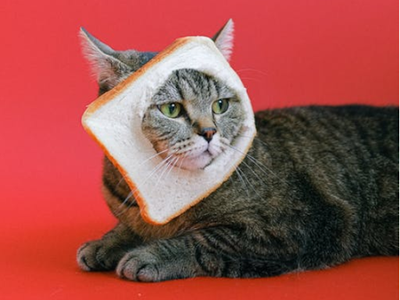
![Associated image for Best food for Ragdoll cats in the UK [Broken Down]](http://untamed.com/cdn/shop/articles/featured_best_food_for_ragdoll_cats_uk_400x300_crop_center.jpg?v=1646818249)
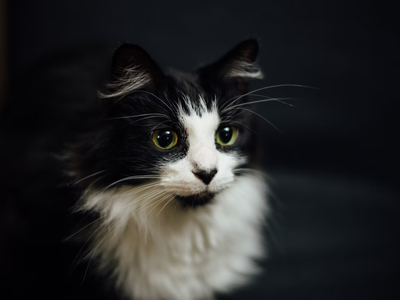
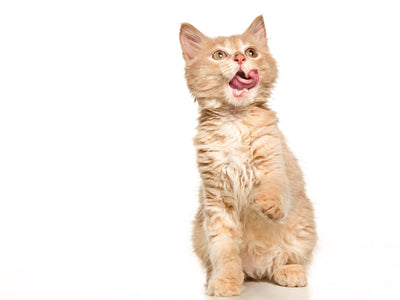
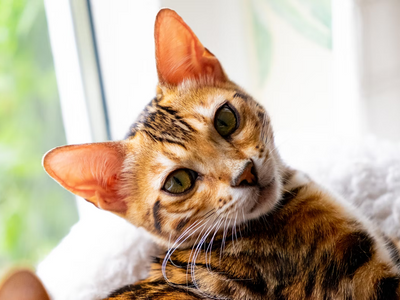
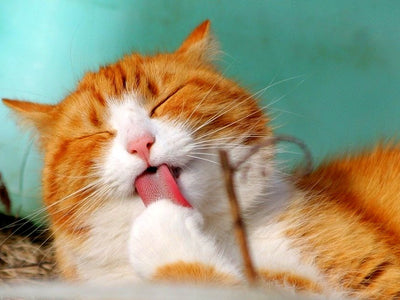
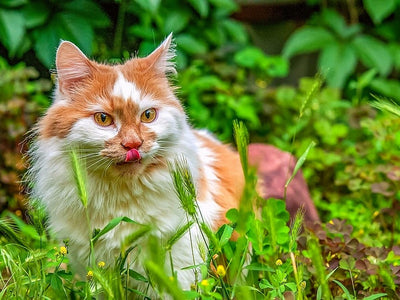
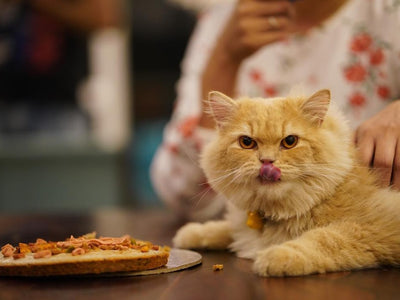
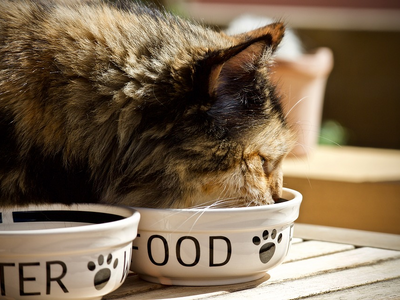
![Associated image for What human food can Sphynx cats eat? [Comprehensive list]](http://untamed.com/cdn/shop/articles/what_human_food_can_sphynx_cats_eat_Featured_400x300_crop_center.jpg?v=1648705074)
